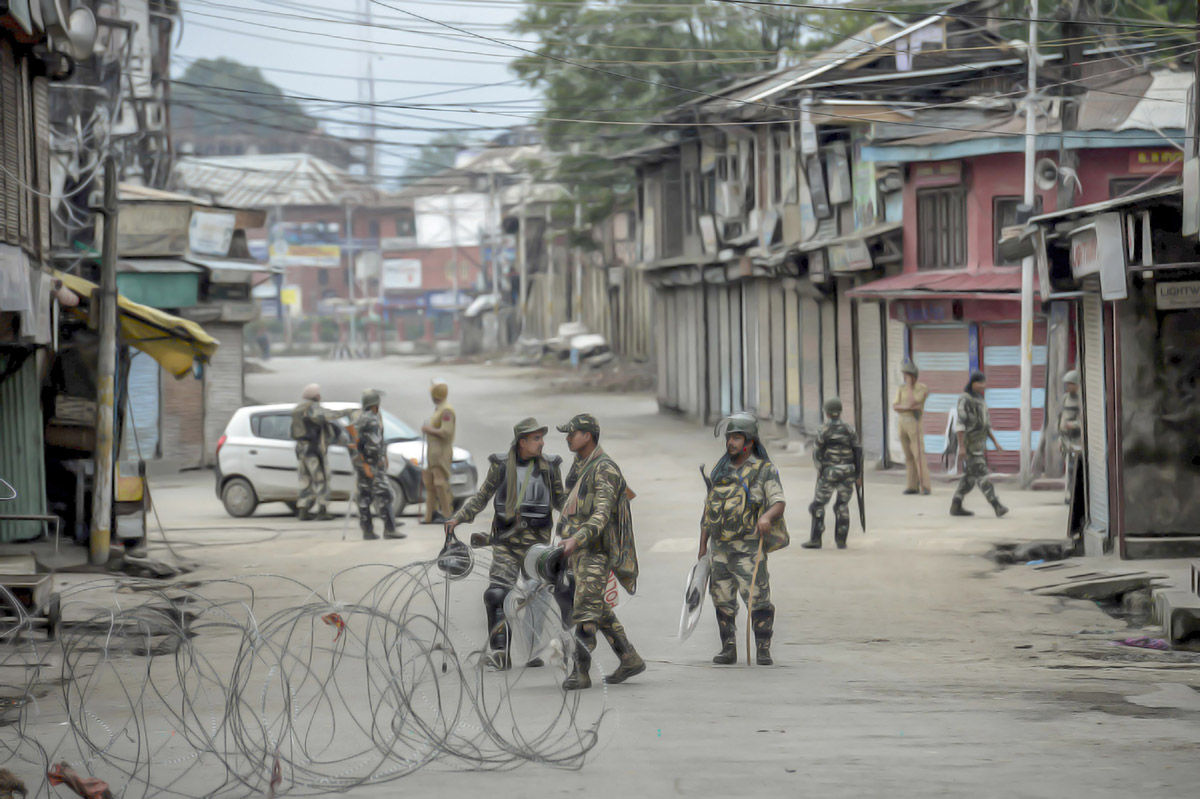By Farooq Azam, PhD Scholar
On 5th August 2019, India, under the provisions of its constitution, revoked the special status of occupied Jammu and Kashmir, marking four years since this momentous decision. During this period, there has been an excessive use of force and violence by the Indian authorities in occupied Kashmir.
Political activities were curtailed, and to date, the region has not seen any legislative elections for its assembly. India has been drastically altering the demographics in occupied Jammu and Kashmir, similar to how Israel changed the population balance in Palestine.
On 14th February 2019, a tragic incident occurred in Pulwama, occupied Kashmir, where Adil Ahmad Dar, a local Kashmiri youth, carried out a suicide attack on a convoy of the Central Reserve Police Force (CRPF), resulting in the loss of more than 40 security personnel’s lives. This attack marked one of the deadliest events in the history of occupied Jammu and Kashmir.
Following the attack, India blamed Pakistan of involvement, but when Pakistan demanded evidence, India decided to take matters into its own hands and conducted airstrikes. On 26th February, Indian fighter jets reportedly crossed the Line of Control (LoC) and bombed a mountain in Balakot, claiming to have targeted a Jaish-e-Mohammed training camp, resulting in over three hundred casualties.
Pakistan refuted the claim and invited international media to visit the site, which ended up exposing India’s actions. However, this escalation further heightened tensions between the two countries.
A few months later, in May 2019, India held its general elections, and the Bharatiya Janata Party (BJP) successfully formed the government again, with Narendra Modi becoming the Prime Minister for the second term. The BJP-led central government decided to implement its policy regarding Jammu and Kashmir on 5th August 2019, unilaterally abrogating Articles 370 and 35-A of the Indian Constitution, which provided special status to Jammu and Kashmir.
After the annulment, the region of occupied Jammu and Kashmir and Ladakh division were reorganized into two separate administrative units directly under the central government. The decision led to an unfixed communication blockade, curfew, and a clampdown on political leaders and activists in occupied Kashmir. It also sparked a wave of anger and protests in Pakistan, while celebrations were held in India.
In response to the situation, Pakistan’s Prime Minister Imran Khan engaged with various international leaders, including US President Donald Trump, appealing for their attention and urging them to play a role in resolving the Kashmir issue. The United Nations Security Council (UNSC) held an informal closed-door meeting on 16th August to discuss the delicate situation in Kashmir and the violations of human rights in the region.
At the conclusion of the meeting, China’s permanent representative to the UN, Zhang Jun, stated that Kashmir is an internationally recognized dispute and should be resolved according to the UN resolutions. He also warned that India’s actions could further escalate tensions in the region.
Pakistan’s permanent representative, Dr. Maleeha Lodhi, highlighted that the UNSC meeting established that Kashmir is not India’s internal matter and rejected India’s claims of “reasonable restrictions” imposed in the region. In September, during the 74th session of the UN General Assembly in New York, Prime Minister Imran Khan again raised the issue of Kashmir. He warned that when two nuclear powers engage in conflict, the consequences are not limited to their borders, indicating the seriousness of the situation.
Kashmir remains an ongoing issue at the UN General Assembly, where Pakistan’s representatives, including the Prime Minister, President, Foreign Minister, and the permanent mission to the UN, have consistently advocated for the Kashmiri cause and presented Pakistan’s stance on various international forums. Additionally, Kashmiri organizations and freedom leaders have also continued to engage with Pakistan and the international community to bring attention to the Kashmir dispute. Despite the efforts and struggles of Pakistan and Kashmiri representatives, it is undeniable that the situation in Kashmir remains complex and challenging. On one hand Pakistan has been striving to keep the issue alive in the eyes of the global fraternity while on the other hand India has been managing to distract attention and avoid any substantial international intervention in the matter.
In brief, it is evident that the Kashmir dispute continues to be a critical issue that needs to be resolved through international consensus. The situation demands an end to India’s inhumane curfew, the release of all political prisoners, and, most importantly, granting the Kashmiri people their right to self-determination. The world must realize that it is crucial to recognize the urgency of the Kashmir issue and play a constructive role in finding a just and lasting solution.
The author is a PhD Scholar at KU.


